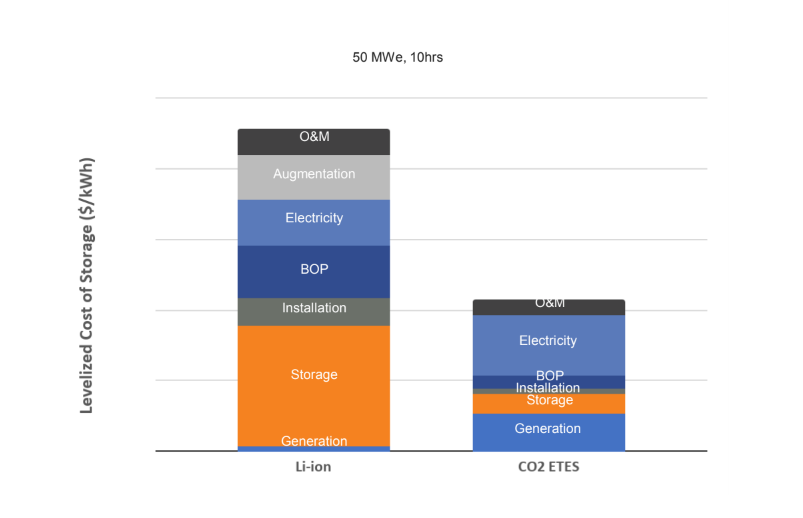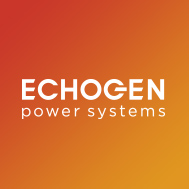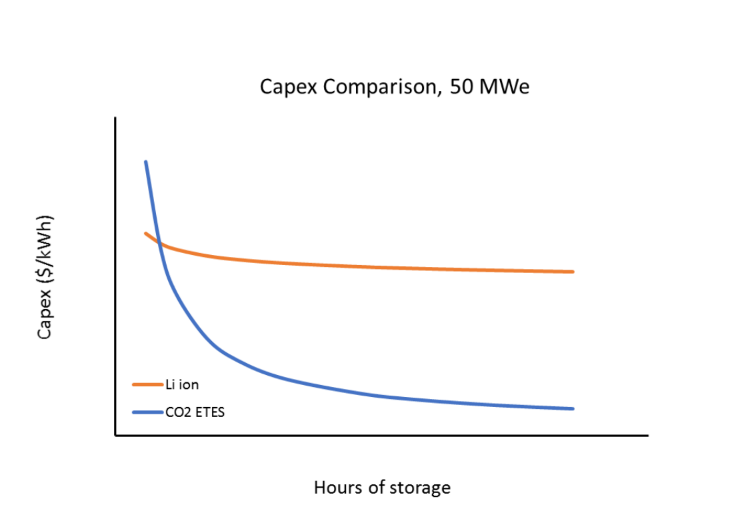Pumped Thermal energy storage (PTES) offers key advantages over other advancing technologies. For example, Chemical battery solutions have limitations (cost, performance, cycles, materials, environmental, health & safety, degradation, etc.) which are exacerbated as storage duration requirements lengthen.
Key advantages
- Low capital cost
- Full operational flexibility with no limit to cycling duty
- Safe, environmentally benign materials
- Zero augmentation costs
- Higher projected reliability
- Low environmental impact
- Competitive performance
- Long plant life with no performance degradation
Capital Cost and LCOS
PTES capital cost and levelized cost of storage (LCOS) compares very favorably versus li-ion battery systems, with increasing advantage as storage time increases above 6 hours.
Environmentally Friendly
Echogen PTES thermal storage materials are benign to produce and operate, and simple to dispose at the end of plant life, maintaining a low environmental footprint throughout the product life cycle. This is a contrast to the many metal chemistries of fixed and flow electrolyte batteries, as well as more exotic storage materials of other PTES systems. Thus, the Echogen PTES system maintains a low environmental footprint through its value chain.
Why CO2?
- CO2 is the best fluid for PTES, providing high-performance, low cost and low impact
- Charging: CO2 is one of the first heat pump fluids ever used (charging cycle), and condenses near 0°C
- Generating: CO2 power cycles are commercially available today
- CO2 properties allow for high round-trip efficiency (> 60%) while using low-cost materials


